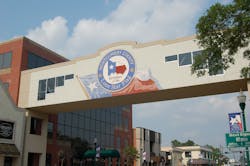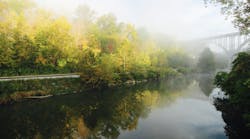Six Cities to Receive Free Neighborhood Development Consultations
Six American communities will receive free neighborhood design consultation in 2013 from Global Green USA with the help of a grant from the U.S. Environmental Protection Agency’s (EPA) Building Blocks for Sustainable Communities Program. Over the next 10 months, four sustainability experts will conduct three-day visits to communities and provide comprehensive recommendations for infrastructure and policy changes aimed at helping the communities build a future that is more resource-efficient, livable, healthy and environmentally responsible.
Montgomery, Ala.; Camden, N.J.; Cary, N.C.; Toledo, Ohio; Burlington, Vt.; and Milwaukee, Wis., were competitively selected for the free consultations based on several criteria, including need for assistance, urgency, substantial upcoming projects and community engagement.
"Cities are responsible for up to 70% of global warming pollution, but they can also be the laboratories for climate friendly solutions that save money, improve health and quality of life," said Walker Wells, director of Global Green USA's Green Urbanism Program. "For nearly two decades Global Green has been helping cities create sustainable plans for the future and we are excited to be able to bring our expertise to these six deserving communities."
Starting in February, the Global Green sustainability team will visit each of the communities with other planning and sustainability experts from around the country—including Raimi+Associates, Farr Associates and Agora Group. During the site assessment, the team will identify a neighborhood’s positive qualities, consult with community stakeholders in meetings and public workshops and identify major opportunities to improve the sustainability of each neighborhood.
At the conclusion of the visit, the team will present recommendations for both physical and policy changes that may include streetscape improvements, ecological restoration, integrated energy and water infrastructure, new standards for in-fill and transit-oriented development or zoning code revisions to allow for urban agriculture or mixed-use development.
The sustainability experts evaluating the communities will use the LEED for Neighborhood Development (LEED-ND) standard, a nationally recognized method for creating neighborhoods that are walkable, bikeable, resource-efficient and equitable. Benefits of LEED-ND neighborhoods can include lower municipal operations costs, reduced infrastructure costs, increased use of alternate transportation, improvements to public health, and environmental protection. LEED-ND was developed by the U.S. Green Building Council (USGBC), the Congress for the New Urbanism and the Natural Resources Defense Council.
Source: Global Green USA


